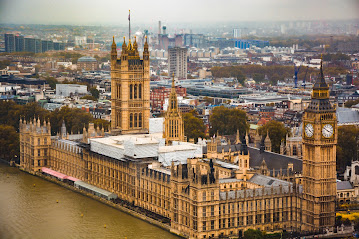The Rise Of Maggie Thatcher
Today we are going to be diving into history, the history of Britain and of the conservative party. In many ways Britain proved itself to be a leader, having many firsts under her belt and developing many new technologies. Maggie Thatcher became the first female western leader of a political party in February 1975.
The UK at the time was suffering under a Labour government
that was seeing strikes in the news almost daily. So when in 1979 a General
Election was held the people of the UK voted for a change. They voted on a promise to end the strikes, on a promise to get Britain moving again. They voted Tory. The Conservative
party was elected and history was made. Some of these strikes had been running for
months. these were often flailing attempts to wrest their previous power back. For the trade unions to have a seat at the table.
Her policies to get the country on its feet were popular with the general public. Taxation was lowered, but in doing so it started a run of unhealthy years for the UK. A decision she made is still felt some 45 years after the fact. She created the right-to-buy in council housing. Still to this day, this move has created a shortage of council housing in the UK. She gave the people a way to buy houses but didn't have any legal framework in place to ensure more social housing was built to replace the stock lost to the policy. A run of eight years in office that saw the budget balanced and the UK looking good in the eyes of the world.
However, several factors were making Maggie look like a one-term PM. Rising unemployment due to some of the policies, these same policies also caused some companies to go under. There were rising social tensions in many of England’s major cities. Regular rising tensions between black communities and the police, which often lead to violence. But, in April 1982, Argentina invaded the British-held Falkland Islands and the South Georgia Island, According to Argentina it belonged to them, it was the Islas Malvinas. The UK tried to be diplomatic.
That attempt failed. So the UK went to war. A task force was quickly assembled and set sail. It was a war in which no one really won. The UK suffered terrible losses, and Argentina was humiliated.
In June 1983 the UK returned Maggie back to power. I also
voted for the first time. However, a dark cloud was on the horizon. A darkness
that still prevails to this day in the North-East and North-West of England.
Just don’t mention the witch by her name, unless you fancy being buried.
A year-long and often very violent miner’s strike rocked
England. With Maggie wanting coal mines shut down. The miners reacted, led by
Arthur Scargill. They fought the government, they fought the police and they
fought their friends at times. It was a disaster. In the end, they caved in. Still, to this day there are echoes of this time in Britain's history across the north of England. There are many lakes that were created by the effects of coal mining, there are education establishments that were originally created to teach engineering to miners, now used to teach everything from English to computing.
Then the IRA made an audacious attempt on her life. They
bombed the hotel she and her cabinet were staying in for the Conservative
annual conference in Brighton. She survived. Sadly some did not. It led to a
famous quote from the IRA. “we have to be lucky once, you have to be lucky all
the time”. It also made the start towards peace with the move by the British
government to get the Irish government an advisory role in the Northern Ireland government. It was the first step toward the Good Friday agreement.
-David



Comments
Post a Comment